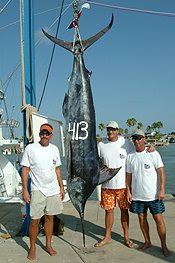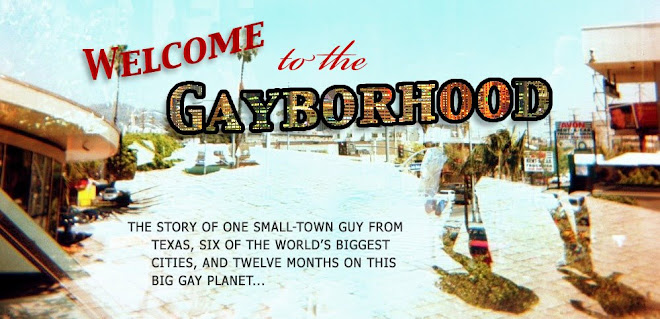I grew up in a small shrimping town on the coast of South Texas by the name of Port Isabel.



Now, as far as small-town Texas goes, things really don’t get much quainter or sleepier. Nonetheless, despite sixteen years of hunting, fishing, and high-school football, I was slowly dragged, more or less kicking and screaming, toward my homosexual destiny in an area where such a thing is a little less than kosher.
When, while living in Arizona, I'd finally conceded to the idea that I was gay, the transition was rough. Curiously though, the sleeping with men part seemed a rather trivial element. It was more the idea that in some way didn’t get to decide who I was anymore, that my life and destiny were in part to be scripted for me. The “truth” was that I was this other thing, this other person who belonged in a faraway city, superficial and vain, who I didn’t know and who had little or nothing to do with who I was.
Nonetheless, after a few months of reflection (as well as engagement in the sufficiently manly work of construction and carpentry) I was ready to go and seek out my people. I moved to LA in search of a ‘gay culture’ that would help make sense of my life only to find that... it didn’t exist. Nobody’s grown up acculturated to a universal gay society; they’re all just people, from different walks of life. And so, they give a little and take a little, and through this interaction create a new, shared understanding of what it ‘means’ to be who they are. Still, the factors that shape gay identity in the US are many, and the role of mass media is strong - displaying only a very narrow range of people, lifestyles, and ethnicities, and holding them to be representative of the whole of American society.
Feeling satisfied with my personal growth and dissatisfied with a world I increasingly felt to be co-opted by commercialism and niche-marketing schemes, I decided to put my love life on the back burner in favor of focusing on my studies. And so, I moved out to a little college in the mountains where I could study biology, go camping, and be myself...sort of.
It wasn’t until I became exposed to gay networks back home on the Texas-Mexican border, visiting my family in Chile, or studying abroad in Costa Rica that I saw firsthand how gay identities and communities can and are being formed in many ways outside of the mainstream social movement. Queer people all over the world are learning to not only reconcile their identities and values with that of national and international images and social movements, but learning to relate to each others' lives and struggles not simply in terms of a universal theme of escaping from their homeland to a rich, white, urban gay culture on the other side of the country (or the world), but through sharing what love, friendships, and family turmoil is like in their own context within their own communities.
Since then, I’ve spent a considerable amount of time involved in review of the literature on sexuality, identity formation, and social movements. This process, in addition to profoundly challenging the way I explore the underlying struggles of my life, has been a source of fascination and inquiry for me in it’s own right. Due, however, to a number of factors ranging from a lack of funding to the rapid and immediate nature of globalization, the literature exhibits a startling bias toward the experiences of the US and Western Europe (with a few notable exceptions), leaving much of the world’s modern sexual communities the subject of speculative discourse and generalizations.
It was in the interest of helping to bridge this gap (at least in the public eye) that I set out to develop this
project.




